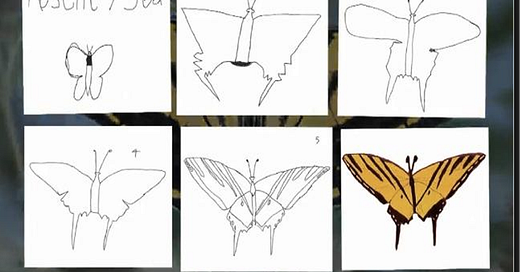Assessing the foundation subjects in the primary curriculum
Well hello there, and welcome to update #102!
One of the ongoing conversations I’m having with colleagues relates to getting a handle on assessment of the foundation subjects in primary.
It’s important that we know how our pupils are getting on for several reasons:
§ As a matter of entitlement – have our pupils encountered and engaged in the lovely content and great ideas?
§ To check whether there are any gaps in their exposure to, engagement with and learning of the curriculum
§ To provide information to leaders, including governors and trustees about how pupils are getting on
§ To celebrate what young people have achieved!
One of the challenges in gathering this information is that there are no national benchmarks or exemplars for standards in the foundation subjects.
When there’s talk of reaching ‘age related expectations’ I scratch my head and wonder whereabouts the ARE for the foundation subjects actually exist. I’ve been looking for them for years, and they’re not there!
I think what’s happened is that because the standards in primary are more tightly defined in maths and English, there’s a tendency to think it’s possible by extension, to do the same for the other subjects.
And I think this is where we’ve sometimes got into a muddle.
One of the most helpful ways I’ve found to get some clarity on this, is to go back to what Tim Oates has to say on assessment.
At the heart of coming to some judgements about whether our pupils have learnt what was intended, we can look at the things they ‘produce’.
The next question is ‘What are some of the things that pupils might produce to show what they know, understand and can do?’
Here are some examples:
§ What pupils say about what they’ve been learning
§ Some writing that shows they have generated new knowledge and insights as a result of what they’ve been taught
§ Results of low-stakes quizzes
§ Performance in PE
§ Creating art and artefacts
§ Double page spreads and floor books
We then use our judgement to say whether these ‘products’ are a reasonable indicator of whether pupils have learnt what we intended.
To make the judgements more secure, we might take some samples of pupils’ ‘products’ and discuss them with colleagues.
My view is that it’s generally possible to tell whether pupils have ‘got’ something or not through looking at examples and chatting with them.
This, for example, from Austin’s Butterfly: here we can see the journey that Austin has been on as he is supported to create an accurate drawing of a swallow tail butterfly.
It’s evident from looking at the ‘product’ that Austin has made progress and that he’s learnt what was intended.
Does it need a number?
I don’t think so…
I’ll be exploring the opportunities for rich assessment of pupils’ learning of the foundation subjects in a short course starting in January. It will be live and recorded, light touch, interactive and hopefully enjoyable.
I’ll be running the assessment course on The Teachers’ Collection – and it will be available to all colleagues in schools with a subscription.
I’ll be sending out more details and if you’d like to be kept in the loop, you can sign up for more info here.
Until next time
Mary





I think needing a number for assessment comes from SLT. I always felt that, as a primary school teacher, I wasn't fully trusted with my judgements of a pupil's progress. SLT often wanted a number or grade to get a snapshot of the progress for the class. Whilst I agree this has it's uses I much prefer using teachers professional judgement to truly assess where children are.
“Does it need a number?” is such a pertinent question. It feels as though assessment is never valuable enough without one. The problem I see is that we have people who like to analyse things numerically/in data form and people who rely on intuition to find the truth. Both are valuable but the focus on data prioritises the input of data-people and those of us who can say just as much through intuition aren’t listened to. The resulting infrastructure is then better suited to both analysing through data and educating those who like to see outcomes in that form, and the cycle goes on.
Rant over 😂